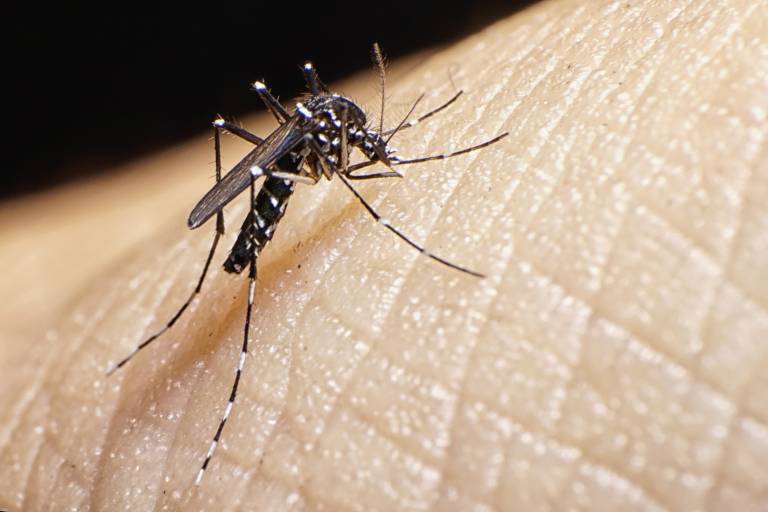Mosquito tracking app helps to combat neglected tropical disease in Brazil and Madeira
A smartphone app developed at UCL that tracks mosquitoes, is providing an early-warning detection system for mosquito-borne diseases including Zika, Dengue and Chikungunya.

17 August 2022
Mosquitoes carry viruses that cause deadly human diseases, including Zika, Dengue and Chikungunya. In Brazil, where the Aedes Aegypti mosquito is common, an epidemic of Zika in 2016 caused severe disease and death in adults and congenital abnormalities in unborn children. Efforts are underway to eliminate the Aedes mosquito, which carries the Zika virus.
“Strategies to rid the area of Aedes mosquitoes include regular surveillance, destruction of breeding sites, and treatment of homes and buildings infested with the mosquito,” explains Professor Patty Kostkova, UCL Centre for Digital Public Health & Emergencies (DPHE).
However, this labour-intensive approach does not provide important digital surveillance data that could help inform wider control strategies. To address this, Professor Kostkova, in collaboration with universities in Brazil, has developed a gamified phone app that will help public health teams to locate and deal with mosquito hotspots in real time.
“Our novel early warning tool will help to predict breeding hotspots and enable community health workers to focus their efforts on locations where eliminating mosquitoes will help to reduce Zika, Dengue and Chikungunya in humans,” explains Professor Kostkova.
The app-based system, named MEWAR (mosquito population modelling for early warning system and rapid health authority response), combines information including datasets of disease prevalence, mosquito breeding habits and weather data. It has been piloted successfully with dozens of community health workers and environmental health agents in three Brazilian cities – Recife, Penambuco and Campina Grande. Health ministry officials have used it to successfully identify dwellings most at risk of infestation.
“We are also working with local communities on water management and sanitation to improve awareness of mosquito breeding risks, and increase population resilience and protection against mosquito-borne diseases,” adds Professor Kostkova. The system is also being used in Madeira, Portugal, where similar mosquito infestations are common due to its warm subtropical climate.
““Our novel early warning tool will help to predict breeding hotspots and enable community health workers to focus their efforts onto locations where eliminating mosquitoes will help to reduce Zika, Dengue and Chikungunya in humans.”
The system is now being developed further, with the team deploying online water and weather sensors in mosquito traps in Madeira. Transmitting data to the internet in real time will help environmental health experts to pinpoint conditions most suitable for mosquito breeding, enabling health workers to quickly identify and control outbreaks.
 Close
Close


